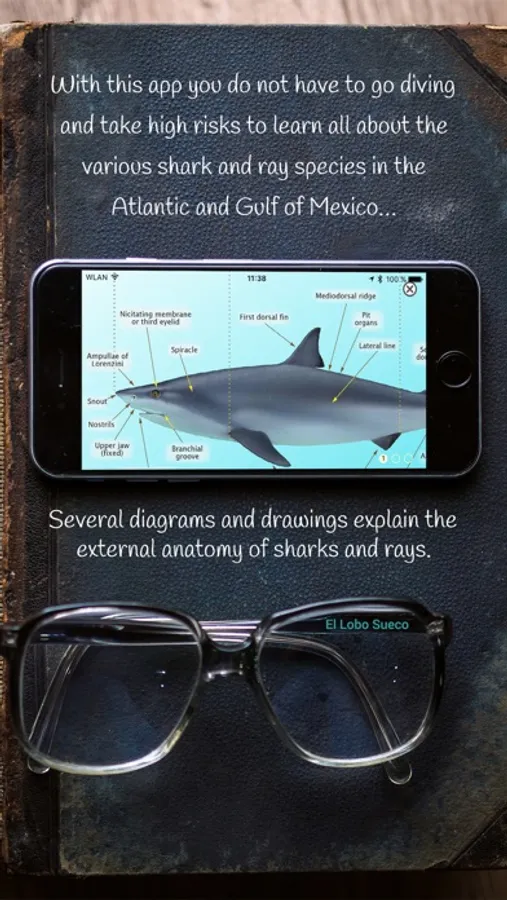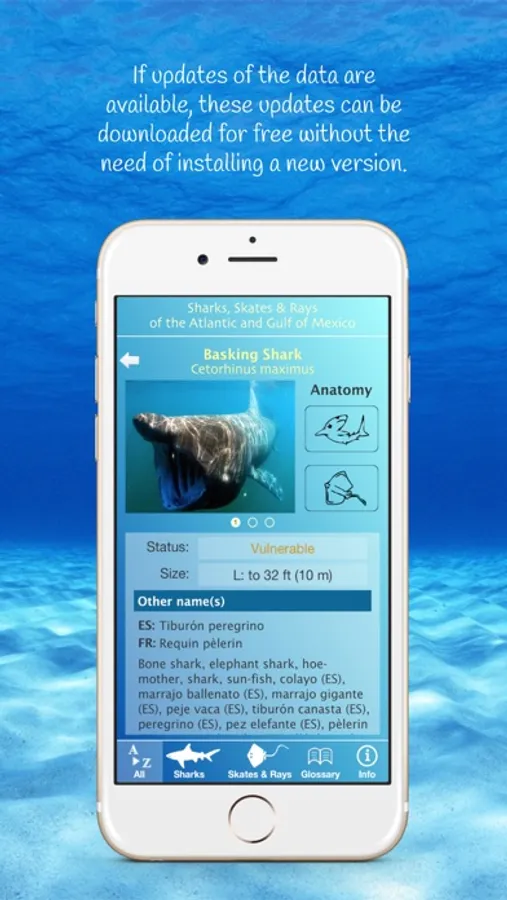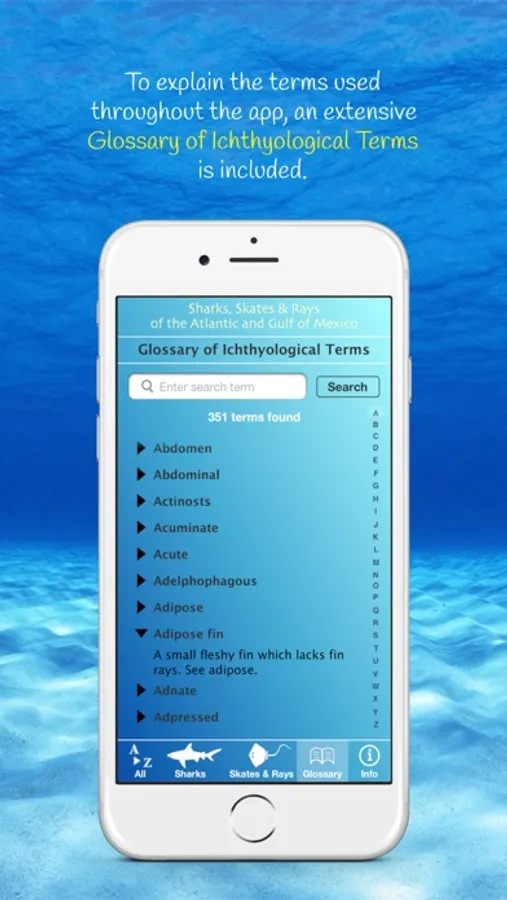About Sharks and Rays
This app features over 60 species of sharks, skates, and rays that are found in the waters of the Atlantic and the Gulf of Mexico. Each species is described in detail in terms of identification, habitat, diet, and reproduction. Apart from the descriptions, the taxonomic names (Latin) and the names in Spanish and French are listed, as well as any other used names in English, Spanish (ES) and French (FR). For each fish there are high-resolution pictures included in the app.
To explain the terms used throughout the app the app features an extensive glossary of ichthyological terms as well as diagrams (zoomable on the iPhone) explaining the external anatomy of sharks and rays.
The app runs fully as a standalone app that contains all information mentioned above, no internet connection is required.
Sharks, skates, and rays form a group of fishes also known as the elasmobranchs. There are about 800 species of this group, over half of which are skates and rays. The remainder of the group are sharks.
Sharks, when compared to skates and rays, are designed more for speed and power. Many species rely on agility to capture prey. Their bodies are torpedo-like in shape, streamlined for quick movement through the water. The thickest part of their body is about one third of the way back from the head, and it tapers off from there in a form that reduces drag when swimming. Sharks propel themselves through the water by moving their tail fins laterally back and forth.
The bodies of skates and rays, in contrast to sharks, are flattened into disc or diamond shapes. They have reduced tail fins and swim by undulating their fins on each side of the body up and down in a wave-like manner. Many species of rays and skates are either bottom feeders or filter feeders.
To explain the terms used throughout the app the app features an extensive glossary of ichthyological terms as well as diagrams (zoomable on the iPhone) explaining the external anatomy of sharks and rays.
The app runs fully as a standalone app that contains all information mentioned above, no internet connection is required.
Sharks, skates, and rays form a group of fishes also known as the elasmobranchs. There are about 800 species of this group, over half of which are skates and rays. The remainder of the group are sharks.
Sharks, when compared to skates and rays, are designed more for speed and power. Many species rely on agility to capture prey. Their bodies are torpedo-like in shape, streamlined for quick movement through the water. The thickest part of their body is about one third of the way back from the head, and it tapers off from there in a form that reduces drag when swimming. Sharks propel themselves through the water by moving their tail fins laterally back and forth.
The bodies of skates and rays, in contrast to sharks, are flattened into disc or diamond shapes. They have reduced tail fins and swim by undulating their fins on each side of the body up and down in a wave-like manner. Many species of rays and skates are either bottom feeders or filter feeders.




